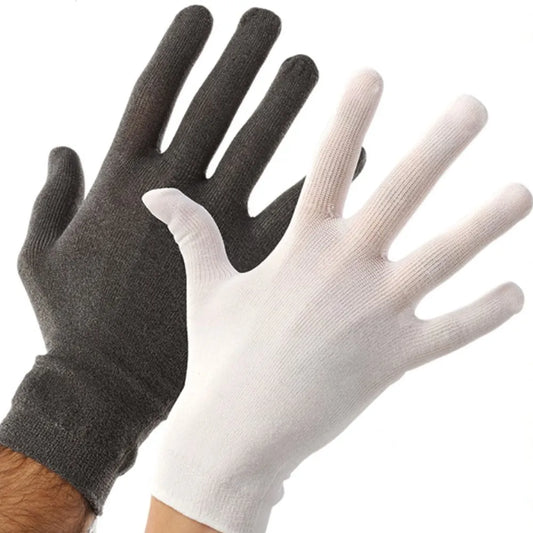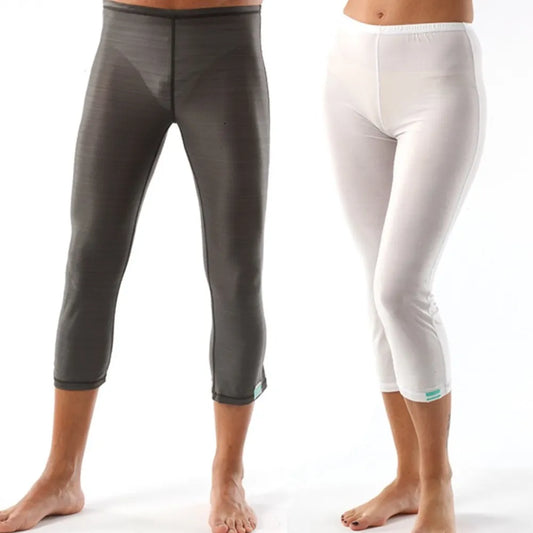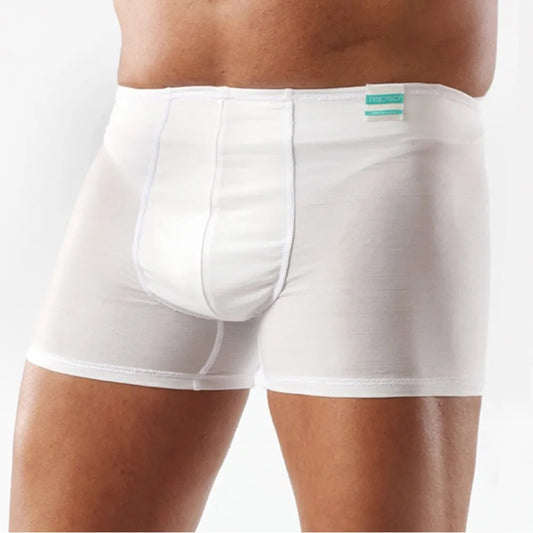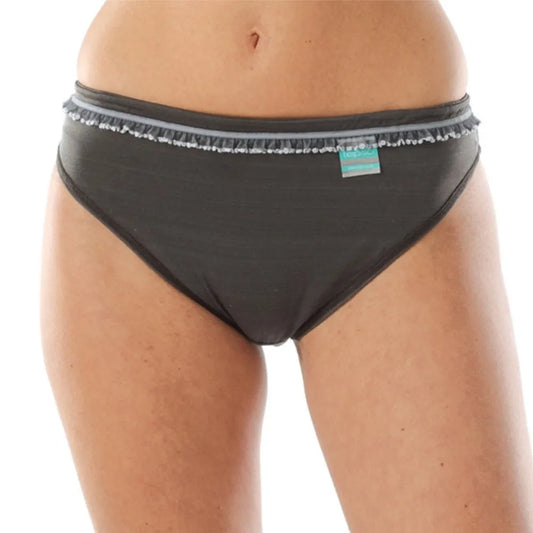Eczema is commonly associated with both poor sleep quality and difficulty in falling asleep. Studies have found that up to 90% of adults with eczema also have problems with sleep1. A study by the National Eczema Association in the USA found that sleep was one of the top three most problematic symptoms of eczema. Not surprisingly sleep is especially problematic during eczema flare-ups2.
Why does my eczema itch more at night?
It’s completely normal for eczema sufferers to feel more itchy at night for a number of reasons.
- Body temperature and the blood flow to the skin both increase in the evening. Both of these factors warm the skin, making it more sensitive.
- This increase in skin warmth also means that the skin loses more water at night. Dry skin tends to be more itchy.
- At night, the body releases more cytokines, which increase inflammation. Meanwhile, the production of corticosteroids – hormones that reduce inflammation – slows.
- During the day, distraction often means that itching is less noticeable. At night, with nothing else to think about, the itch comes back to the fore.
Check the temperature of your bedroom
Given that temperate is one of the main reasons for nighttime itching, it's no surprise that keeping your bedroom cool really can make a big difference to eczema sufferers' sleep.
During warmer weather, try keeping curtains closed during the day to keep the heat out. Then open the windows to let the cooler air in during the evenings and overnight. Putting a bottle of frozen water in front of a fan makes for a cheap and effective alternative to air-conditioning (put the bottle in a bowl to catch the condensation). Consider switching to a light blanket or investing in a light-weight duvet for the summer months.
In cold weather, it's not just a case of setting the thermostat in you bedroom to about 16-18°C. This will only set a minimum temperature. Heat rises and as a result you may well finds that heating doesn't come on at all upstairs when the downstairs rooms are warm. This is especially true in the evenings, just when you skin is at its itchiest.
When the heating is on, keep your bedroom door closed, to keep the warm air in the hallway and consider opening your window a crack as well.
Rethink your bedtime routine
Typically a lot of eczema care occurs in the last part of the day, just before you head to bed, which makes the itch harder to ignore.
This is partly because the eczema itch has two elements:
- the physiological itch is the discomfort caused by the irritation of the nerves in your damaged skin. Some eczema creams, especially those containing steroids or urea can sting on application triggering the physiological itch
- the psychological itch is the itching sensation brought about by just thinking of something itch (think about head lice and you'll be scratching you head without realising it).
When you're applying emollients and doing whatever else you need to do for your skin, the psychological element of the itch brought on by thinking about eczema care means you can't help but feel itchy.
Try reordering your bedtime routine to get the eczema care done earlier before spending time doing something completely different to let the psychological itch subside before you try to sleep.
Deal with worries before you try to sleep
Talking or thinking through the day and downloading any worries or concerns before going to bed can be really effective way to prevent unwanted thoughts from stopping you falling asleep easily. If you're that way inclined, diary writing can be really helpful. Making a to do list for the morning can also be effective, especially if it includes actions to mitigate any worries that you have.
If you can fall asleep quickly, you will have less time to think about scratching itchy eczema.
Use visualisation and distraction imagery
We all know that once you are aware of an itch it’s almost impossible not to think about it (and scratch). The aim of these techniques is to fill the mind with something so engaging and interesting that both worries from the day and the psychological itch of eczema aren’t able to interfere with the drift into sleep. Studies have shown this technique reduces the time between settling down and falling asleep3.
There are many, many structures for things to think about as you fall asleep. Counting sheep is the old favourite, but here are two other ideas that we like:
- Backward day. Work through what has happened during the day starting at bedtime and working back to breakfast.
- Happy place. Where’s the best outdoor place you’ve ever been, a beach, the mountains, a forest, imagine that you’re there, imagine the wind and sun on your face, look at the view, take a deep slow breath – what can you smell? Think of who’s with you, enjoy the feeling of being there.
Controlled breathing to promote relaxation and sleep
Deep, slow breathing has been shown to have a number of sleep inducing effects including increasing the production of melatonin, an essential sleep-inducing hormone, and slowing both the heart rate and the sympathetic nervous system (the body’s ‘fight or flight’ stress response), promoting relaxation4. Concentrating on breathing also acts as a distraction from other thoughts and the eczema itch – see above.
There are lots of different breathing techniques to choose from and plenty of great resources on the internet. This really doesn't need to be complicated, something as simple as counting your breathes can achieve both the slow breathing and distraction we talk about above. For example: breathe in for four counts and out for four counts. Each count should be about a second, so 1 crocodile, 2, crocodile*…. (* insert your favourite animal/thing).
Progressive muscle relaxation to aid sleep
Progressive muscle relaxation (PMR) is based on the premise that mental calmness is a natural result of physical relaxation. It has been in the sleep toolkit since the 1920s and studies have shown that it can both improve sleep quality and reduce anxiety5. While something as simple as a big stretch or a couple of whale breaths (see above), may do the trick, PMR gives a structured way to help you relax.
As with visualisation and controlled breathing, PMR gives the mind something to focus on other than the eczema itch. While inhaling, contract one muscle group (say toes and feet) and hold it tight for the count of 5, then quickly exhale and let go, releasing the tension in that muscle group. Take a slow deep breath in and slowly exhale and feel how good your feet feel now they are relaxed. Then tense the next muscle group (say legs, by pulling up your toes), count to 5 and release and breathe. It doesn’t matter what order you use or if you miss out parts of the body, but it may help to follow the same pattern (in this example, working up the body) each time you do this.
Acupressure points to encourage sleep
Acupressure works by massaging particular points of the body, unlike acupuncture no needles are involved and it can be used for babies, children and adults. While acupressure has been around for thousands of years, research into its effectiveness is still limited. The existing studies about acupressure and sleep are too small to be conclusive but their results are promising. It’s definitely a technique worth trying for your sleep toolkit.
There are a number of pressure points said to aid sleep in various ways, here are three options that can be especially helpful for eczema sufferers.
- The Yin Tang point is located in line with the nose, just above the eyebrows. This point is also said to alleviate discomfort and pain. Try gently stroking or massaging this point.
- The Lao Gong point is on the hands and you can find it if you bend your second finger (longest finger) into the centre of your palm. Once you’ve identified that point, using a gentle circular motion, gently rub the area to soothe and reduce restlessness.
- The Zuqiaoyin point is not quiet so easy to get to! It's right on the end of the fourth toe (the one before your little toe). Again gently rub this area in a circular motion and it can help with pain, calm the mind and prevent dream disturbed sleep.
Other tools for your eczema sleep toolkit
There are plenty of other sleep tools that can help you sleep just a little more easily. Here are a few more options to add to your eczema sleep toolkit.
- Music or stories can work really well for some eczema sufferers providing the distraction mentioned above. If you choose talking books, make sure that the story is a familiar one, or you’ll find yourself staying awake to find out how it ends.
- Mindfulness apps like Headspace useful for keeping your mind off the eczema itch.
- Weighted blankets can also be useful for some eczema sufferers. Users report that the extra weight discourages unconscious scratching. However, given that blankets are by definition warm, this is probably an eczema sleep tool best saved for the winter months. As a rule of thumb, a weighted blanket should be around 10% of the users body weight. If you suffer from low blood pressure, any respiratory disorder, type 2 diabetes or obstructive sleep apnea you should check with you GP before using a weighted blanket.
- Eczema gloves. By covering your hands, you can minimise the damage and wakefulness caused by unconscious itching while you sleep. Check out our night gloves made from super smooth fibres. They'll even help your hands heal while you sleep by holding creams in place for your skin to absorb slowly throughout the night, rather than being absorbed by the gloves themselves.
As well at the eczema night gloves mentioned above, we also stock PJs and daywear made from the same super smooth fibres - visit our shop for more information.





